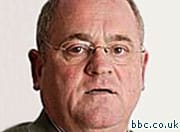A Bill to introduce controversial presumed consent for organ donation in Scotland is not supported by the majority of MSPs on Holyrood’s Health and Sport Committee.
In a report published today, the committee said that most of its MSPs think there are “serious concerns” about the “practical implications” of the Bill.
A majority of MSPs on the committee also do not think there is enough clear evidence that changing the law in this way would increase organ donation rates.
Organ donation rates
The report did however call on the Government to launch a consultation on a “workable soft opt-out” system, recognising the need for higher organ donation rates.
The transplantation Bill, introduced by Scottish Labour MSP Anne McTaggart, would create an ‘opt-out’ system, whereby a patient’s organs may be removed for transplant unless they have registered an objection.
It would also allow for decisions to be made on behalf of a deceased adult by a “proxy”.
Presumed consent
The Scottish Parliament is expected to debate and vote on the general principles of the Bill before 12 February.
The Health and Sport Committee took evidence from organ donor recipients, those awaiting transplants, families of organ donors and faith groups.
The MSPs also visited Spain, which currently has a presumed consent system for organ donation.
Evidence
The committee’s report highlighted that there is unclear evidence as to whether the introduction of an opt-out system in Spain did actually lead to increased rates of organ donation.
Convener of the committee, Duncan McNeil MSP, said: “As a Committee we have to consider all the evidence placed in front of us and it was clear that there are differing views about the best way to increase donation rates.
“Whilst the Committee supported the aim behind the legislation, a majority couldn’t support the detail.”
Serious mistakes
The committee has called on the Government to “learn from the experiences of Wales”, which has recently implemented its own presumed consent system.
The Scottish Council on Human Bioethics (SCHB) had warned MSPs that introducing an opt-out system for organ donation could lead to “serious mistakes”.
Director of Research at SCHB, Dr Calum MacKellar, said: “Instead of having to get the nearest relative, all that has to be done is that the Authorised Investigating Person states that they have not had access to the relatives or proxy and they – an NHS person – authorise the use of organs.”
Dr Gordon MacDonald from CARE for Scotland, said: “The State does not have a right to anyone’s organs and even a so called soft opt-out system ruins the nature of organ donation as an altruistic gift”.


